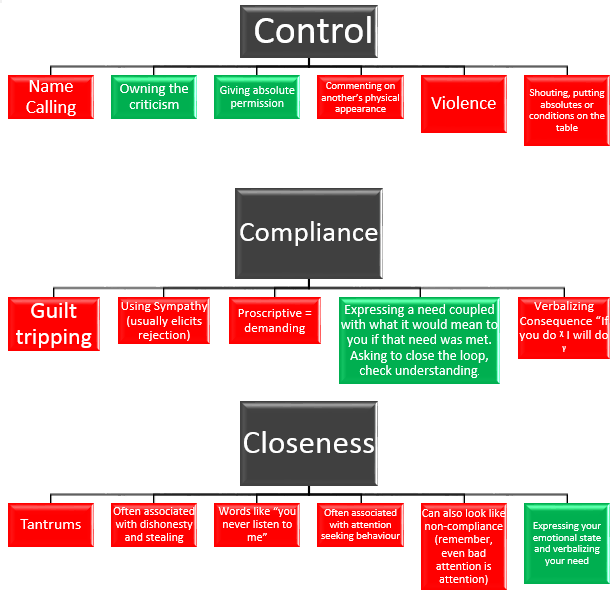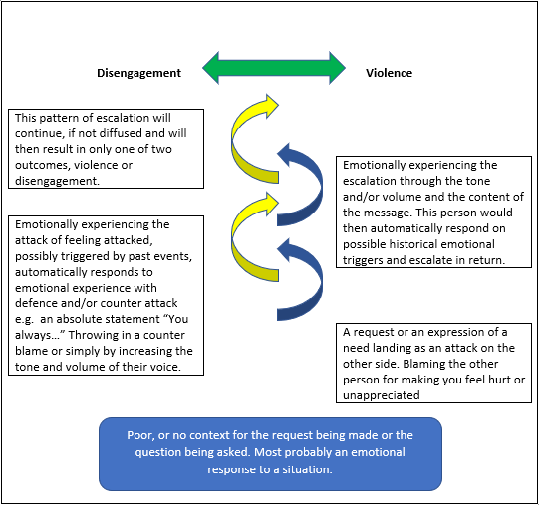The Benefit of a Clinical Psychologist Mediator
Every relationship is communication, conflict and disagreements are by-products of missed messages, misinterpretations, learnt behavior and emotionally reflexive responses. Poor communication can be destructive and expensive if not effectively mediated.
Adding a well-trained clinical psychologist to a legal team as mediator can save money and time and result in finding a solution that better serves all the people involved in a dispute, whether it be in the context of divorces, family businesses, businesses, custody battles, personal injury law suits, discrimination suits, other workplace complaints and court room preparation and strategy. Following is an explanation in support of this statement.
There are many options available in Cape Town for those in need of a mediator. Employing a mediator is a grudge spend for all. You are already at odds with another person or organisation and spending more money to try and resolve it can be a massive pain. So saving money, and concluding the dispute should be your top priorities. Attorneys will usually recommend that their clients select a retired judge, former big firm partner, or famed trial lawyer-turned-mediator as mediators.
While these mediating powerhouses provide excellent service to large-scale commercial lawsuits, there are many other situations that a clinical psychologist mediator can save you time and money. More specifically, someone who is trained in communication and interactional pattern analysis, someone who is equipped and has the temperament to deal with people experiencing emotional extremes. An example would be a divorce attorney working with clients in a heightened emotional state going through one of the most difficult and emotionally provoking transitions in their lives.
An emotionally driven person could trip themselves up, and will, more often than not, not act in their own best interest. The combination of hurt, anger, fear, resentment and the law is a dangerous and potentially expensive one. There is a difference between a lawyer with a great “deskside” manner and a clinical psychologist who is skilled in dealing with a person in an irrational emotionally charged state. When it becomes about pride, control, revenge and dread for one’s future and perhaps the future of children, then logic will not always come out on top. Stressful situations can bring the worst out of the best people. This is because any relationship IS communication, and conflict left unchecked, in any interaction will result in violence or disengagement, the final destinations in a process of communication breakdown, also known as a failed relationship or unresolved dispute.
A clinical psychologist mediator can also be of assistance during witness or testimony preparation. Being able to respond strategically to sensitive topics and having insight into how emotions can be triggered and how to respond when an attempt is made to provoke a response, could influence the outcomes of a case or dispute. A psychologist mediator trained in communication and interactional pattern analysis can be of immense benefit to both the client and legal team.
A clinical psychologist is a valuable resource in the process of divorce or any other dispute. It is common for lawyers to refer clients to clinical psychologists in Cape Town and across the world, for one-on-one, on-line or Skype based assistance/therapy. Attorneys also refer clients to psychologists for assessment. Treatment can help heal some of the wounds so that solutions to disagreements can be found. Assessments provide information that give context for the behaviour of adults, teams and kids that can be used to inform decisions made in different disputes or sensitive situations in a business and legal context.
In addition, the value of a clinical psychologist’s skill who is trained in interactions, communication and pattern analysis can be applied to many different situations. A clinical psychologist mediator with this training background can also be a valued, neutral resource in estate planning, inheritance, dysfunction in family business or other businesses. A specifically trained clinical psychologist can also be effective in other litigation matters such as employment discrimination, sexual harassment, assault or molestation. A clinical psychologist mediator and communications expert is of value in all delicate matters. This is because communication and relationships are central to all human interactions.
For example, consider the emotional needs of both parties during a divorce, family business, or business dispute. In all these cases there is an underlying motivator, a basic need to be heard, an ego to protect and control to be maintained in addition to material gain. Teasing out the emotional needs behind the dispute, re-framing them into understandable requests and coming to a workable solution, might take more than the active listening skills usually applied by a mediator. A trained and experienced clinical psychologist can validate, provide accurate empathy and ground the messages and needs underlying the emotionally driven words and actions. A skilled clinical psychologist mediator can also transfer skills so that both parties engaged in the dispute learn and grow from the experience, in addition to finding a workable solution. Only when the emotional cost of lost expectations or dreams, a personal attack and/or emotional hurt has come to rest, can a dispute come to a resolve.
It is common for an attorney mediator to weigh up the costs and benefits of legal action and then to make a decision based on the probability of a favorable outcome. Clinical psychologist mediators on the other hand contribute by facilitating and matching client emotion, pace and language. A skilled Clinical psychologist mediator can simultaneously spot issues, apply rule to fact and draw conclusions. By doing this he/she provides a space where the client is heard, understood and guided towards acting in his/her best interest in a patient and effective manner. This is done by focusing on the process and not the content. Basically by focusing on why something is said, and not how or what is said.
Below are some examples of Process/why (Control, Closeness, Compliance) and Content what/how (Observed Behaviour) and effective and ineffectivemaneuvers.
A trained clinical psychologist mediator will not only pick up on what was said, but also the intent with which it was said. By being able to pick up on the relational dynamics in the mediation room the clinical psychologist can help facilitate a mutually beneficial solution.
An example of how a breakdown in communication can trip up negotiations : A child has special needs and the mother asks her ex for more money. She is maneuvering for compliance without first setting proper context with evidence. Without proper context her request could feel like a maneuver for control (attack) by the father, in which case he will escalate by accusing (attacking) the mother of extortion (blame). The mother will in turn accuse the father of being stingy (defend, and counter attack) to which the father could respond that she just wants to punish him further for cheating (defend, and jump to another logical level, or another emotional topic, which is unresolved trauma in the relationship=infidelity and loss of trust, damaged ego, confusion, self-blame, fear etc.), after switching to another logical level and triggering a whole bunch of emotions, the father is now in control. The wife then responds (defends) on the emotional hurt of the infidelity and anger etc. which overrides logic and the original request is lost. She likely responds by saying: “I hate you and I hope you burn in hell!” Once a conversation has escalated to this point one could expect her to leave the room or hang up the phone or physically attack him. So, the child’s needs aren’t met and the conversation ends in disengagement or violence.
In this case the need for extra money for the child remained unmet, the relationship has suffered further damage by the interaction becoming an emotional escalation, wasting time and money. This pattern of escalation can be identified and stopped by a trained clinical psychologist mediator, saving both time and money, while serving the needs of the child and preserving civility in an already fragile relationship. If needed, evidence could also have been gathered form psychometric assessments in order to support the request for more money. A clinical psychologist mediator can therefore intervene and help salvage or prevent an explosive situation. Thorough preparation can also help prepare both attorney and client to interact and respond more strategically.
The same principles will apply when dealing with any negotiation.
An example of an escalating pattern of interaction is depicted below:A massive plus of including a clinical psychologist mediator is the added benefit of having someone who approaches the same situation from a different angle. An attorney will focus on building a case based on sufficient provable evidence in an attempt to secure a favourable outcome for their client. The clinical psychologist mediator working in collaboration with the attorney can focus on the emotional impact and motivation behind the case.
A clinical psychologist can provide context for a case by finding out what a client’s emotional drive or motivation is, whether it be a divorce, business related, harassment, personal injury, liability claim etc. A clinical psychologist mediator will be able to ask different and more personal questions to extend the knowledge base for mediation. These factors all contribute to draw up the costs and benefits of engaging in a legal dispute, and thoroughly explore possible outcomes.
A well trained and experienced clinical psychologist mediator’s value can be seen in the mediation process itself as well as in being part of the case formulation and investigation phase. Unlike attorneys, psychologists are trained to get to the deeper meaning, to get people to talk about their lives by providing the human space. A clinical psychologist is trained to see the bigger picture and provide context for, and insight into behaviour. By adding these skills to the mediation process a clinical psychologist is able to facilitate greater understanding, provide creative options and possibly a quicker resolution.
It is important to note that a clinical psychologist mediator, like any other mediator, operates from a neutral stance and is not present in the capacity of a treating clinician. A clinical psychologist mediator’s role is not to diagnose or treat the parties involved, like it is not the role of an attorney mediator to legally advise or represent a client involved in the mediation. An attorney mediator’s legal knowledge is an asset to the client and the mediation process, just like the clinical psychologist’s knowledge around patterns of interaction, personality structures, insight into emotionally driven actions and personal needs would be.From Healing to Happiness: A Clinical Psychologist’s Guide to Overcoming Depression and Anxiety












